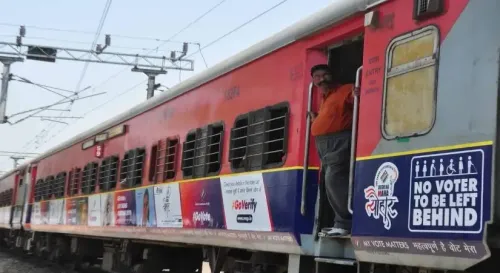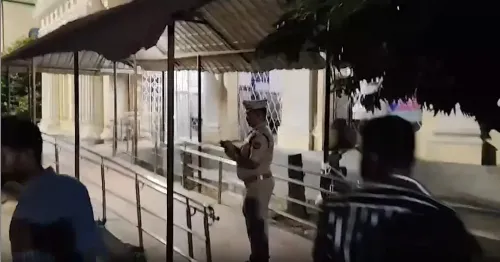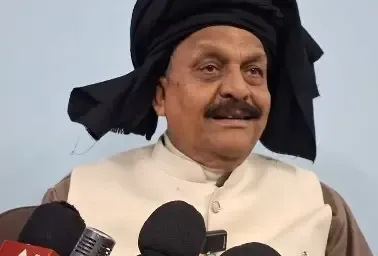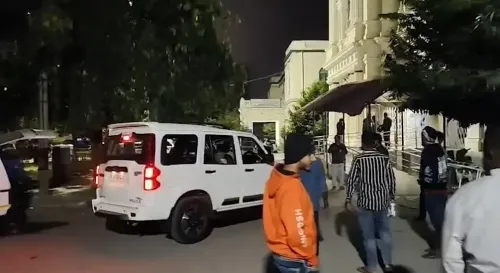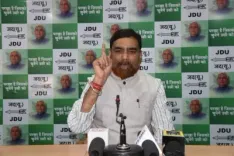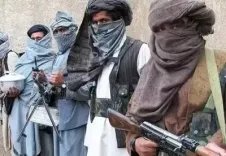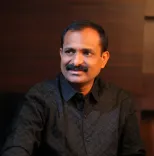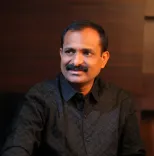Did the SC Establish a High-Powered Committee for Shri Bankey Bihari Ji Temple?
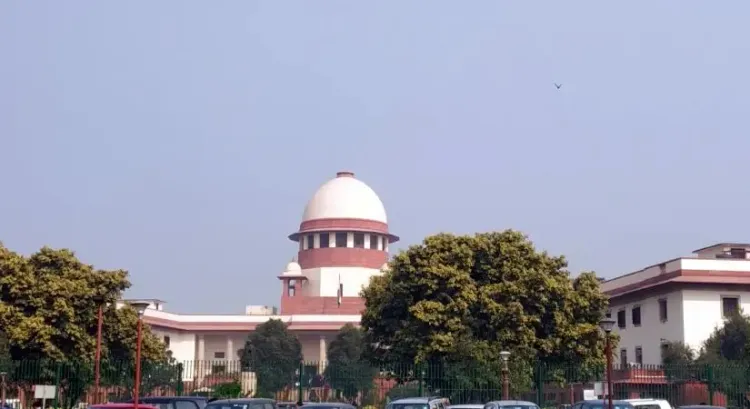
Synopsis
Key Takeaways
- High-Powered Committee: Formed to manage Shri Bankey Bihari Temple.
- Leadership: Led by Justice Ashok Kumar.
- Critical Functions: Focus on essential services and temple operations.
- Legal Oversight: Supreme Court involved in ordinance validity.
- Committee Composition: Includes various legal and local representatives.
New Delhi, Aug 9 (NationPress) The Supreme Court has mandated the creation of a high-powered management committee, led by retired Allahabad High Court judge Justice Ashok Kumar, to supervise the daily operations of the esteemed Shri Banke Bihari Temple located in Mathura’s Vrindavan.
A Bench consisting of Justices Surya Kant and Joymalya Bagchi has stipulated that this advanced management committee will also incorporate retired district judge Mukesh Mishra; Mathura's District & Sessions Judge; the Munsif of Mathura; the District Magistrate; the Senior Superintendent of Police; the Municipal Commissioner; the Vice Chairman of the Mathura Vrindavan Development Authority; a representative from the Archaeological Survey of India (ASI); a distinguished architect; and two delegates from each Goswami group.
The Bench, led by Justice Kant, emphasized that aside from the four Goswami representatives in the committee, “no other Goswami or sevayat shall be associated with, or allowed to interfere or impede in any way in the management of the temple’s critical functions, except in performing puja/sewa and offering prasad to the deity.”
The apex court instructed that the committee will address various matters essential for the temple's proper functioning, such as ensuring clean drinking water, operational washrooms, sufficient seating and shelter, crowd-control pathways, special provisions for vulnerable groups, and safety measures during peak periods and festivals.
According to the Supreme Court’s directive, the high-powered panel will strategize the comprehensive development of the temple and its vicinity, and may privately negotiate for the acquisition of necessary land. Should such negotiations fail, the state government will acquire the needed land legally. The Supreme Court additionally instructed the Principal Secretary of Uttar Pradesh’s Dharmarth Karya Vibhag and Mathura Police officials to diligently follow the committee’s instructions and recommendations.
“The Chairperson shall hold final authority over all matters concerning the committee’s operations, including its procedural rules, scheduling of meetings, and other related matters,” the court stated.
The Chairperson will receive a monthly remuneration of Rs 2 lakh from the temple fund, while retired district judge Mukesh Mishra will earn a monthly honorarium of Rs 1 lakh from the same fund.
The district administration has been tasked with swiftly providing appropriate office space in Mathura for the high-powered management committee, at no cost.
In response to the constitutional challenge against the Uttar Pradesh government’s Shri Bankey Bihari Ji Temple Trust Ordinance, 2025, the Supreme Court opted not to entertain the petitions filed directly before it and directed the petitioners to seek recourse through the Allahabad High Court.
Until the legality of the Ordinance is determined, the Justice Kant-led Bench has temporarily suspended its provisions that empower the state government to form a trust for managing the temple’s affairs.
“The establishment of the Shree Bankey Bihar Ji Temple Trust, as outlined in Section 3 of the Ordinance and its composition in Section 5, shall remain in abeyance until the question of the Ordinance’s validity (or any related Act subsequently enacted by the State Legislature) is conclusively adjudicated by the Allahabad High Court,” it stated.
The Supreme Court clarified that it has not reviewed the constitutionality of the contested Ordinance, leaving all matters open for the Allahabad High Court’s evaluation. It urged the High Court to expeditiously resolve the controversy, ideally within a year of new petitions being filed.


